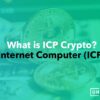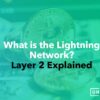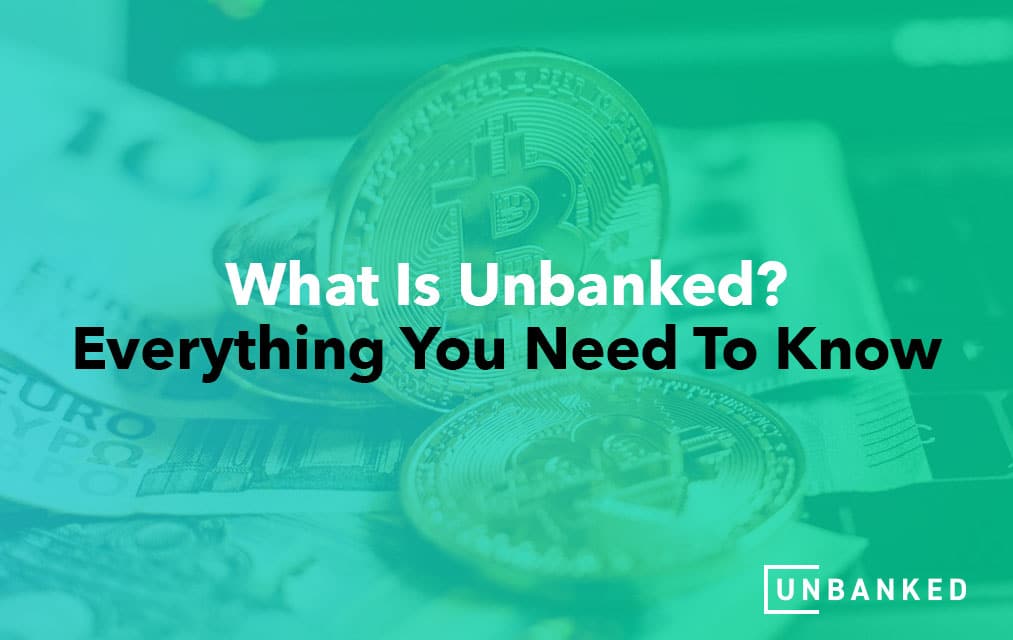For millions of Americans in impoverished communities, or who immigrated here from other countries, the banking system can be a significant challenge. Even if they had excellent credit and a solid financial background in their home country, it might not transfer to the U.S. It can be challenging to secure a loan and build wealth when you have limited access to essential financial services, as it comes with high monthly commissions and fees. The term “unbanked” refers to those who don’t have access to financial services, and “underbanked” refers to those who have minimal access to essential financial services.
Related: Blockchain: The Technology Most Likely to Change the Future of Global Finance
Who The Banking System Leaves Out
As we described above, there are many challenges that unbanked and underbanked populations experience, whether they only have access to baseline financial products, don’t have enough revenue to open an account, or lack the resources and education to enter the banking mainstream.
The Federal Deposit Insurance Corporation (FDIC) reports in its latest National Survey of Unbanked and Underbanked Households that 14.1 million American adults (more than 6% of U.S. households) are unbanked. While the overall unbanked population percentage is going down, the numbers remain incredibly high in underserved communities that experience systemic injustices and income inequality.
For example, Hispanic (14%) and Black (16.9%) households are almost 5 times as likely to be unbanked as White households (3%). The most significant indicator of an unbanked population is the income level. 19% of families who earn less than $30,000 per year are unbanked, versus 2.4% of households who earn more than $30,000 per year.
The population of underbanked Americans, defined as those who have a bank account but sought non-bank alternative financial services the past 12 months, adds up to 48.9 million adults, or 18.7% of households. Lacking access to attainable or affordable financial services, underbanked populations in America are forced to find different routes to accomplish everyday financial tasks, from saving money and cashing checks to taking out loans and making transactions. Unfortunately, these alternative methods often result in sky-high interest rates, predatory lenders, costly fees, and other pitfalls that trap people in a cycle of living paycheck-to-paycheck or otherwise unable to meet financial goals.
For immigrants who have experience managing wealth and credit in their home countries but don’t have access within the United States, the problem typically lies in entry barriers. Without a credit background in the U.S., it is tough to get a loan, and the loans they can access often take advantage of their situation.
Looking for technological banking solutions and advice? Check out UnBanked today!
Why People Are Unbanked
For many people, financial services are too expensive. The alternative routes unbanked or underbanked populations often take generally cost more over time. Still, financial institutions often have steep entry barriers for people without much cash, such as minimum deposit requirements, fees, and other upfront costs. Take Bank of America, for example. At Bank of America, one of the biggest banks in America, the monthly maintenance fee is $12 for an advantage plus checking account, which can only be waived by a minimum monthly deposit of $250, or maintaining a minimum daily balance of $1,500 or more.
Other hurdles like not having a valid ID or not having adequate transportation to a bank branch can limit access to underserved communities. Often, people who receive cash advancements on their paychecks fall into a vicious cycle where their debt continuously resets. Without being able to open a checking account, or any way to build credit, the cycle repeats itself. Since there are no opportunities to consistently receive money they’re owed or cash a check, they are forced to live paycheck-to-paycheck perpetually. There is also a certain level of distrust of banking institutions in poor and immigrant communities, which can stem from being excluded from financial education initiatives, or bad personal experiences.

Problems With Living Outside The Financial System
While broad systemic change is necessary for greater financial inclusion, the adversities which the unbanked community face are deeply personal. Some costs of being unbanked in today’s America include:
Inability To Access Credit
Credit history is critical to take out loans at fair interest rates, obtain financing for a car or home, or qualify for credit cards. Borrowing money is an essential aspect of being able to build wealth over time and grow your assets. A credit card is one of the most common entry points to credit-building- however, only 7.2% of unbanked households can access credit through a credit card. Prepaid debit cards are used by many unbanked people to handle non-check payment services and to conduct cashless and online transactions, but debit cards have their own fees and don’t help build credit.
Extra Fees
The highest prices for financial services often fall on those with the fewest resources. An average financially underserved household’s annual income is around $25,000, with an average of $2,412 spent on interest and fees annually. That’s 9.5% of their income, just on alternative financial services! Compare this with consumers who have checking accounts, who on average pay slightly over $100 per year in non-sufficient fund and overdraft fees.
Payday lenders, especially, prey on impoverished consumers who lack access to bank loans or credit cards by offering instant loans with interest rates as high as 500%.
No Savings
Saving is a problem even for those who have bank accounts and credit, but unbanked communities are at exceptionally high risk of emergencies derailing their financial goals. The FDIC report shows that unbanked households can save for unexpected expenses and emergencies at a much lower rate than underbanked and banked households. The unbanked households who can save tend to store their savings through informal, insecure means, like cash in the home, with family and friends, or on prepaid cards that are subject to fees and don’t accumulate interest. Especially during the COVID-19 pandemic, the ability to establish a savings fund through a secure savings vehicle is more critical than ever.

Financial Technology Can Help
Fortunately, financial technology is democratizing the ability to access credit, bank, analyze your business interactions, and manage your financial situation. UnBanked covers the future of money with the latest technologies such as mobile apps, digital currencies on the blockchain, and neo banks, to serve underbanked and unbanked individuals around the world. Increase financial access and literacy with Unbanked today.
Looking for technological banking solutions and advice? Check out UnBanked today!





